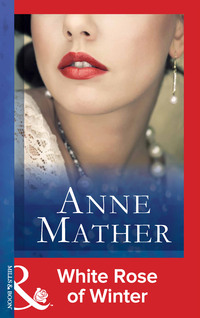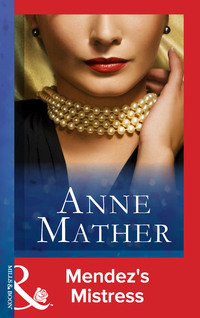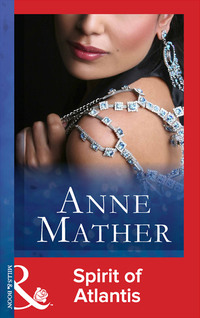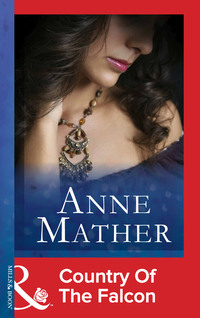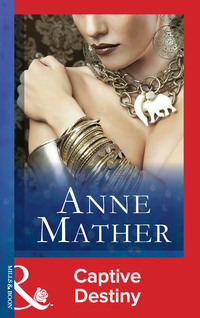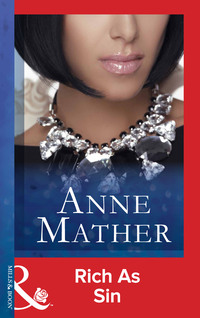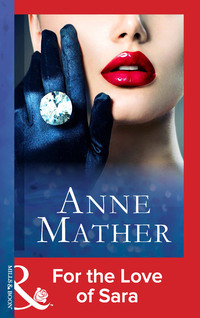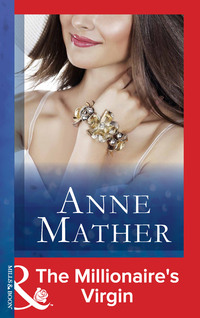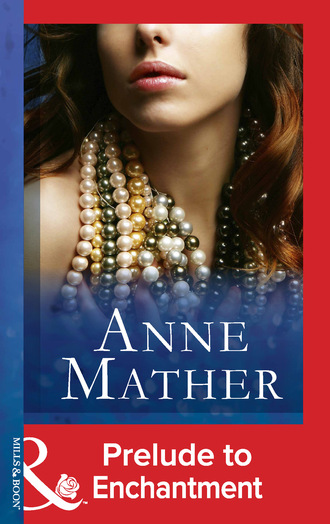
Полная версия
Prelude To Enchantment
He inclined his head. ‘Of course.’ He glanced round the huge apartment. ‘The palazzo was built in the sixteenth century and was originally owned by a commercial trading family who lost their fortune when Napoleon Bonaparte was making a name for himself. It is, as you can see, badly in need of renovation, although these apartments which I have for my own use are reasonably comfortable.'
‘Thank you.’ Sancha finished the sentence carefully.
‘What now?’ The Count surveyed her intently. ‘Tell me, are you not a little young to be conducting such an interview, or is Parita experimenting in the use of junior reporters?'
Sancha looked up indignantly. ‘I am perfectly capable of conducting this interview, signore,’ she retorted, her annoyance overcoming nervousness momentarily, but only momentarily so that when she realised what she had said she felt discomfited. However, there was a glint of amusement in the Count's slightly narrowed eyes, as he said:
‘I understood a Signorina Fabrioli was to interview me.'
Sancha bit her lip. ‘Yes, she was,’ she admitted reluctantly. ‘But I'm afraid she was taken ill at the last moment, so——'
‘So you were deputed to take her place?'
‘Yes.’ Belatedly she remembered she had not said signore.
‘I see.’ The Count stubbed out the remains of his cheroot. ‘Do go on. Do you wish to get on to the book now?'
‘Oh! Oh, yes!’ Sancha flicked over the page in her notebook. ‘Yes, of course. Er'—she was flustered—‘er—would you like to tell me what inspired you to write such a book?'
‘You have read it?’ His eyes were too piercing.
‘Yes,’ Sancha faced him resolutely. She would not let him disconcert her.
‘Then you ask me what you would like to know,’ he parried.
Sancha sighed. ‘All right.’ She sought about in her mind for an opening. ‘Have—have you always been interested in this period of Italian history?'
The Count frowned. ‘Well, signorina, the Borgias have always interested me. And the artists of that time—Dante, Michelangelo, Giotto; the Renaissance period was an inspiring period, don't you think?'
‘Undoubtedly.’ Sancha swallowed hard. ‘Did—did the book take long to write?'
‘To write, no. To research yes. I suppose in all it took perhaps two years from inception to completion. Writing is a fascinating business, do you not agree?'
Sancha smiled faintly and nodded. Mentally she went over what she had put down, trying desperately to keep the conversation going. It would be too awful to sit here with his man and say nothing, constantly aware of the searching penetration of his eyes. She was not used to men like him. He was much older than any of the men she associated with, for one thing, and she speculated upon his actual age. He could have been anything from thirty-five to forty-five, but she did not like to ask. She had a description, and that would have to be enough. There was the information about his family, of course, that could be enlarged upon back at the office, and there was the further history of the palazzo itself which she could no doubt research herself in the city's archives. Then there was the book; she could perhaps use some more information about his style of writing, and the reasons behind it.
Looking up again, she said: ‘How do you write, signore? I mean—do you have set hours every day when you work at the book? Or is it a thing of inspiration?'
The Count considered her question before answering. Then he said: ‘When I was writing the book I followed many variations. Sometimes I could write for hours on end, and at others a few lines only. At the moment, I am researching for another book and I work most mornings.'
‘Oh, that's interesting!’ Sancha was glad of another avenue to follow. ‘May we know what this second book is about?'
‘Of course.’ The Count inclined his head again. ‘It takes up where my first book left off, following into the sixteenth and seventeenth centuries.'
‘I see.’ Sancha nodded, scribbling frantically on her pad.
‘But I am also creating yet another book,’ went on the Count softly. ‘It is not like the others. It is not an historical book, as such, but a book of poetry. Do you like poetry, Miss Forrest?'
Sancha's colour deepened hotly. ‘Er—yes,’ she answered uncomfortably. ‘When—when I find time to read it.'
‘But you must find time, signorina,’ he exclaimed urgently. ‘There is so much beauty to be found in words, don't you think? We should not always use words for prosaic things like this interview for instance. We should allow words to flow—to melodise; to lift us out of the coils of mortal man into the infinite!'
Sancha listened to him, enthralled in spite of herself. Then she realised he had stopped speaking and was regarding her with those disturbing eyes again and she sought refuge in the scribbled lines on her pad.
Wetting her dry lips, she went on. ‘You write poetry, signore?’ without looking up.
‘Very little, signorina,’ he confessed softly. ‘The poems I am collating are the work of sixteenth- and seventeenth-century poets who regrettably were never recognised or published. Some are anonymous, some have the names of their authors, but all are quite beautiful.'
The tenor of his voice changed as he spoke of these things he admired so much and Sancha realised that this was where his real enthusiasm lay. And because he was enthusiastic he had the power to fill her with enthusiasm, too.
‘Will you have some more wine, signorina?’ he asked suddenly, getting to his feet and crossing to where Paolo, had left the tray. ‘It is a hot afternoon. No doubt you are thirsty.'
‘Oh, no, no, thank you.’ Sancha shook her head vigorously. Already the heat of the room and the heady quality of the wine she had already drunk were combining to make her feel slightly drowsy. It was so quiet here, so peaceful after the hectic activity of the magazine offices.
The Count poured himself more wine and then came to lean against the mantel again, one foot upraised to rest upon the polished brass fender before it. Sancha from her position could see the polished boot on his foot and the tautness of the dark trousers against the muscles of his legs. He was altogether too close for comfort and she slid back in her seat as surreptitiously as she could.
‘Is that all?’ he enquired now.
‘I—I think so.’ Sancha closed her book with a snap.
‘Good.’ He swallowed some of the wine and holding up his glass to the light examined the remainder of its contents with intent appraisal. ‘And now perhaps you will tell me something about yourself.'
Sancha glanced jerkily towards the door, willing Tony to appear. This was the moment she had been dreading and now that it was upon her she was unprepared for it.
‘There's very little to know about me, signore,’ she replied, with what she hoped was casual nonchalance.
‘I am sure you are not serious, signorina,’ the Count persisted, turning his gaze to her once more. ‘For instance, what is an English girl like you doing working in Italy?'
‘How can you be sure I am English?’ Sancha was curious.
The Count half smiled. ‘Your companion informed me that your Italian counterpart could not take the interview because of illness. Your name is Forrest, which you will admit is an English name, and besides, you forget, I heard you talking together in the gallery. It was inconceivable that you should be anything else. Besides, few Italian women have your excessive fairness.'
Sancha bent her head. ‘I see.'
‘So now—you have not answered my question. Why are you working in Italy?'
Sancha shrugged her slim shoulders, wishing he would move away, go and sit elsewhere, anything!
‘My uncle is the editor here,’ she explained. ‘I was working in the London office when he suggested I might like to spend a year working in Venice.'
‘Eduardo Tessile, he is your uncle?'
‘Yes, signore. His wife is my mother's sister.'
‘Ah so,’ the Count nodded. ‘And do you like it here?'
‘Very much.’ Sancha managed a slight smile. ‘Venice is a very beautiful city.'
‘You think so? You do not find the odorous scents of the canals offensive?'
‘No, signore.’ Sancha made an expressive gesture. ‘Do—do you?'
‘Me?’ The Count's eyes narrowed. ‘No, signorina. But you see Venice is as much a part of me as I am of it. It is my city, my home. The churches—the squares—the bridges; they represent so much more to me than mere architecture.'
Sancha smoothed the cover of her notebook. ‘The Piazza San Marco is very impressive,’ she volunteered awkwardly.
The Count finished his wine. ‘Yes, very impressive,’ he agreed dryly. ‘But then it is designed to be. However, myself I prefer the less—shall we say tourist-inhabited places of the city.'
Sancha accepted his words silently. She couldn't think of any constructive comment to make. Although she had been in Venice six months she had in fact see little of the lesser-known areas of the city. She worked all week and at weekends her uncle and aunt seemed to think it was incumbent upon them to provide entertainment for her. They had no children of their own and consequently they went out of their way to show Sancha how much they enjoyed her company. In consequence she had done little sightseeing.
‘Tell me, signorina, how long have you been in Venice?’ The Count had poured himself more wine, and was now regarding her searchingly.
‘Oh—er—about six months,’ she replied quickly, wondering whether he was capable of reading her thoughts as well as disconcerting her as he did.
‘And of course you are staying with your uncle and aunt?'
‘Actually, no.’ Sancha shook her head. ‘My uncle's house is outside the city and although he commutes to his office every day he suggested I should share the flat of two other girls who work for Parita.’ She tucked a strand of hair behind her ear. ‘I—I spend weekends with them.'
‘I see.’ The Count inclined his head. ‘You must forgive me if I am excessively curious, signorina, but in Italy a girl such as yourself would not be permitted such freedom.'
Sancha shrugged. ‘Oh, we are quite-emancipated,’ she said, uncomfortably aware of the sardonic gleam in his eyes. She rose quickly to her feet and crossed the wide room to the tall windows which overlooked the canal, staring out with assumed interest. Opposite, the high wall of a building cast shadows on the water and beyond could be seen the gilded campaniles of the city. It was late afternoon and the shadows were lengthening, but the scene was unbelievably beautiful.
The Count flicked his lighter and the sound caused her to turn and glance quickly behind her. He was lighting another cheroot and the flame of the lighter illuminated the tanned length of his fingers. The only effeminate thing about him was the inordinate length and thickness of his lashes and these flickered upwards now as his eyes encountered hers. For a moment he held her gaze and then she looked quickly away tremblingly, aware that his eyes had been assessing her with an almost clinical detachment. But why? What reason could he have? …
The opening of a door relieved her mortification and she swung round eagerly to see Tony entering the room with Paolo just behind him.
The Count's reactions in comparison were smooth and unconcerned. ‘You have completed your pictures, Mr. Braithwaite?’ he enquired.
Tony smiled politely. ‘I would like a couple of shots in here, if I may, signore,’ he replied, ‘but otherwise, yes, I'm very happy with what I've taken.'
‘Good! Good!’ The Count straightened and gestured expressively. ‘Go ahead. Is there anything in particular you wish to photograph?'
‘You would not agree to be photographed holding a copy of your book, I suppose?’ Tony suggested awkwardly.
The Count drew deeply on his cheroot. ‘My dear Mr. Braithwaite. I understand your dilemma, believe me. But it is not exactly to my liking that this article should be done at all as no doubt you have gathered from your editor. But my publisher——’ He spread a careless hand. ‘The palazzo is yours to do with what you will, but I …’ He shook his head. ‘I prefer my anonymity in this mad world of ours, Mr. Braithwaite.'
Tony smiled, obviously with difficulty, and glanced rather meaningfully in Sancha's direction. ‘Very well, signore,’ he said politely. ‘If you'll excuse me I'll get on.'
Within ten minutes it was finished and the Count was bidding them both arrivederci. ‘It has been most enlightening,’ he said, with enigmatic charm. ‘I trust you have both enjoyed it.’ He smiled. ‘As I have.'
Tony managed a polite rejoinder and Sancha murmured her thanks in an undertone.
Then Paolo was escorting them down the marble steps to the lower hall and out into the brilliant sunlight.
Once in the launch, Tony flexed his muscles and breathed a sigh of relief. ‘Thank God that's over!’ he exclaimed fervently, surprising Sancha. Tony was usually so unconcerned.
She looked up at him curiously. ‘What's wrong? Didn't you get the photographs?'
‘Oh, yes, I got plenty of photographs. Paolo saw to that,’ replied Tony lighting a cigarette with hands which were not quite steady. ‘But it was bloody awful down in the dungeons!'
‘The dungeons?’ Sancha stared at him.
‘Yes. You knew they had such things, didn't you?'
‘I—I suppose so. I never thought of it. Why? What went wrong?'
‘Nothing.’ Tony exhaled and seemed to regain a little of his composure. ‘Nothing except that that bloke Paolo seemed to resent me being there.'
‘You mean—he said so?'
‘Nothing so simple. No, it was his attitude. Sancha, I tell you, it made me realise that these servants men had who were reputed to be intensely loyal to the extent of murdering for their masters were real. My God, I believe old Paolo would have murdered me if he'd thought it would do any good.'
‘But why?'
Tony sighed. ‘I told you, the Count didn't want us to do the interview. He's been practically blackmailed into it by his publisher. Paolo knows this. These old Venetian families are pretty tough, you know. They're not used to having to do anything.'
‘Oh, Tony, you're exaggerating!'
Tony managed a chuckle. ‘Maybe I am,’ he admitted, raking a hand through his hair. ‘Nevertheless, I was damn glad when we got out of there. How did you fare? Did you get the interview okay?'
‘Oh yes, yes.’ Sancha nodded, flicking open her notebook and showing him the pages of scribbled shorthand.
‘He's some man, isn't he?’ Tony regarded Sancha closely.
‘How do you mean?’ Sancha was deliberately obtuse.
‘Oh, come off it, Sancha!’ Tony stared at her exasperatedly. ‘Don't tell me you didn't notice.'
‘I—I thought he was rather—well—jaded,’ she replied carefully.
Tony lay back against the side of the boat. ‘Yes, I guess you could put it like that,’ he agreed. Then he looked at her and smiled. ‘Not for little girls like you, though, eh?'
‘Don't be silly!’ Sancha coloured and Tony chuckled again and looked away, his good humour returning as the walls of the Palazzo Malatesta disappeared from view.
CHAPTER TWO
THE offices of Parita magazine were situated in a narrow calle off the Fondaco dei Tedeschi. An international publication, it had offices in most of the major cities of the world, but was published simultaneously in only three: New York, London and Venice. It was a weekly publication slanted towards the arts, yet it maintained an excellent news service. To be featured in the magazine meant instant recognition, and its staff were not indifferent to the importance of the positions they held.
Sancha had first joined the London staff when she was eighteen as a very junior reporter. Her duties had encompassed a variety of occupations not unlike those of a shorthand-typist in those early days, but gradually she had progressed to being assistant to Helen Barclay, the social columnist.
It was then that her uncle had suggested that she might spend a year in Italy, learning the language and familiarising herself with their methods. He had made her assistant to Eleanor Fabrioli, the feature writer, but although Eleanor was only about six years older than Sancha she was vastly more sophisticated and treated the younger girl with a mixture of tolerance and contempt. Sancha did not much like her, but she did admire her work, and after all that was the most important thing.
Eleanor returned to work the morning after Sancha's interview with the Count, and Sancha could see at once that the older girl was not pleased.
‘I cannot imagine why Eduardo thought it necessary for you to handle the interview!’ she exclaimed, almost before Sancha had had time to take off her coat. Sancha had been a few minutes late for work and that had not helped matters. ‘He must have known I would be back today!’ Eleanor went on moodily, staring at Sancha with her heavily made-up dark eyes. ‘I do not believe any editor would have acted as he did without a reason. But of course, you are his niece!’ The way she said the words was an insult.
Sancha went to her desk and opening a drawer she extracted the typescript she had compiled the previous evening from the scribbled notes on her pad.
‘Here you are, Eleanor,’ she said. ‘I copied these out last night. If you want to write the feature, it's all right by me.'
Eleanor snatched the pages ill-humouredly. Scanning the sheets, she exclaimed: ‘Is this all? There are no personal details whatsover! What were you thinking about? You know our readers enjoy the personal touch.'
Sancha sighed. ‘The Count was not at all enthusiastic about the feature,’ she said. ‘He only wanted publicity for the book; not for himself.'
Eleanor's lips twisted thinly. ‘My dear Sancha, since when did a reporter only report what his interviewee wanted reporting? It is up to you to get your subject so interested in what he is saying that he tells you things almost involuntarily.'
Sancha flushed. To imagine herself capable of interesting the Conte Cesare Alberto Venturo di Malatesta for more than a few desultory moments was ludicrous.
Eleanor regarded her closely. ‘What happened? Why are you looking so embarrased? Did the Count nearly eat you up?'
‘Don't be silly.’ Sancha turned away. ‘I did the best I could. I'm sorry if you don't think it's good enough, but I can't help it.'
Eleanor snorted. ‘We'll see about that,’ she said shortly, and rose to her feet, marching down the aisle between the typists’ desks towards Eduardo Tessile's office.
Sancha watched her go, wishing she had the other girl's style and confidence. It was not that Eleanor was tall or willowy, or overpowering in that way. In fact she was small and dark and rather fiery, but she had absolute belief in herself and in her work, and for that Sancha felt envious.
However, when Eleanor returned a few minutes later she looked more than a little put out. She flung the offending sheets of typescript on Sancha's desk and spat out:
‘You do them! It's your article! Your uncle has given the feature to you!'
And with that she stormed away to her own office.
Sancha picked up the typed sheets nervously, glancing over her shoulder apprehensively, but Eleanor had disappeared into her room and the door had been slammed behind her. Sancha stared at the sheets unseeingly. So Uncle Eduardo had not been intimidated; but what of her? How could she write a major article without Eleanor's advice and assistance, knowing as she did that the other girl would tear it to shreds if she dared to consult her? She sighed. She could take it to Uncle Eduardo, of course, he would help her, but did she really want that? Sancha sighed again. While Eleanor had been ill things had been so peaceful in the office, but now all was frustration and turmoil again.
She thought longingly suddenly of London, and Helen Barclay. Helen was quite an elderly woman and she had treated Sancha like her daughter, helping and encouraging her whenever possible. She reminded Sancha of her own mother who had died nearly ten years ago now. Sancha's father had remarried and although Sancha got along with her new stepmother it was not the same. That was why she had jumped at this chance of a year in Italy. It would, too, give her father and his wife some time alone. Even so, life there had been less eventful and perhaps less nerve-racking.
Tony passed her desk, a selection of cameras and meters hung round his neck. ‘Hi there, honey!’ he remarked, grinning. ‘Back to the grind today, eh?'
‘I'm afraid so!’ Sancha cupped her chin on one hand. ‘Are you off on another assignment?'
Tony nodded. ‘There's a new car being road-tested this afternoon. They say it's a sensational piece of engineering. I'm to go and photograph it and so on. Wish you could come along.'
Sancha wrinkled her nose at him. ‘So do I,’ she said fervently.
‘What's wrong? Is Eleanor back on form?'
‘You might say that.’ Sancha fingered the typescript. ‘I'm to write up the feature on Count Malatesta myself.'
‘No kidding! Well, that's great. Good luck, kid! I'm sure you'll make a damn good job of it.'
Sancha grimaced. ‘I wish I had your confidence.'
‘Hey, don't be a fool! Of course you can do it. Anyone can write that kind of stuff. You want to research some of that old history about the palazzo—the more gory the better. You know how sweet old ladies love to read about violence!'
Sancha chuckled. ‘Go on, you're cheering me up enormously.'
Tony laughed. ‘No, I really must go. See you later, eh?'
Sancha nodded and Tony walked off down the office. Then she heaved a sigh and cupped a chin on one hand. Maybe if she had another look at the book she would find inspiration …
At lunchtime she emerged from the office feeling slightly drawn. She had been concentrating hard all morning on Count Malatesta's book, not helped at all by Eleanor's frequent instrusions on her privacy. The older girl seemed to take a delight in mocking her, and she did not pass her desk once without making some scathing comment and momentarily distracting Sancha's attention.
Taking a deep breath, Sancha tucked her handbag under her arm and looked about her. It was a beautiful morning, the warmth lapping over her bare arms like so many rivulets of warm water. She was unaware of the attention she was attracting standing there, tall and slim and attractive, her corn-gold fairness accentuated by the silky curtain of hair which fell straightly to just below her shoulders. In a blue and white striped dress, and a blue suede waistcoat whose laces were hanging loosely, she was the very epitome of healthy young womanhood, and the man who was standing a few yards away watching her with narrowed blue eyes was not unaware of that fact.
Sancha was unconscious of anyone's scrutiny. She was intent on deciding which of the small ristorantes she would have lunch in. Eating houses of every kind abounded in this area, but some were too expensive for her limited allowance. Occasionally she lunched with one of the girls she shared the flat with, but they were both secretaries in the building and often had different lunch hours from hers. But she didn't mind. She was accustomed by now to the slightly predatory glances cast in her direction by the young men of the city, and was quite capable of fending off passes. Italians seemed to consider it their duty to show interest in every attractive female should she be unaccompanied, but a cool stare from Sancha's grey eyes was usually sufficient to quell any would-be pursuer.
‘Buon giorno, signorina!'
The deep attractive tones were vaguely familiar and Sancha swung round sharply to confront the man whose disturbing personality had occupied her thoughts all morning as she had pored laboriously over his book.


